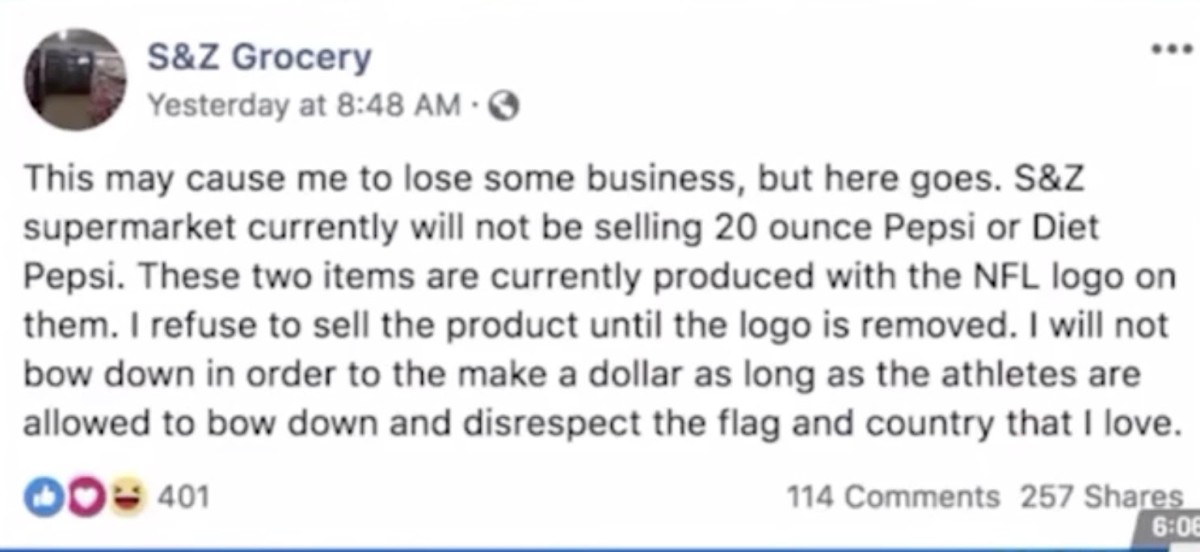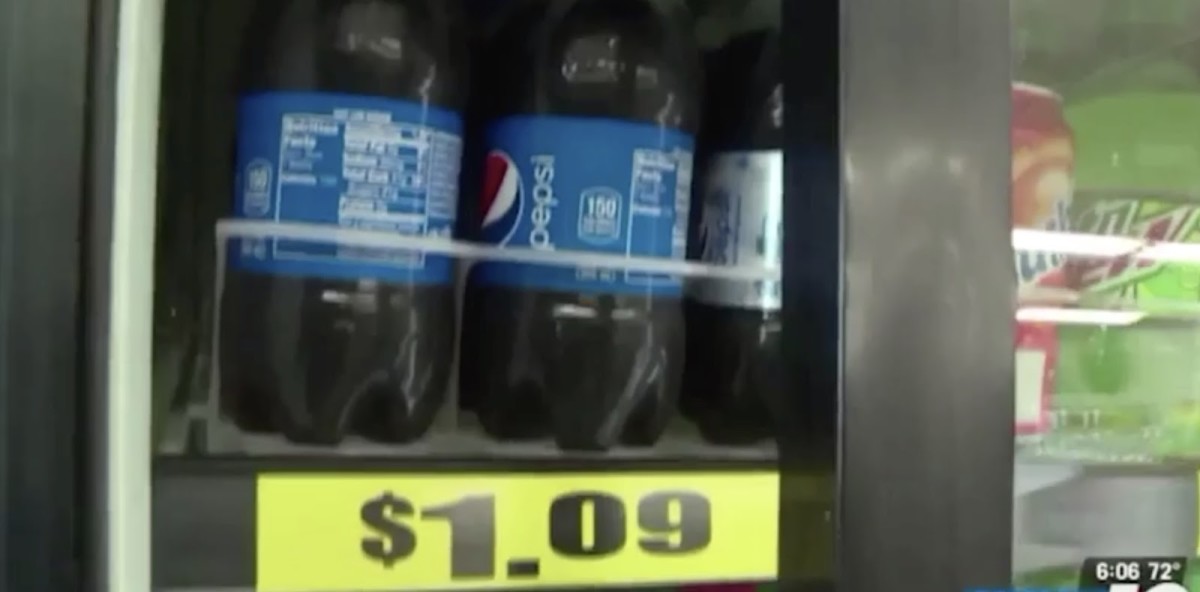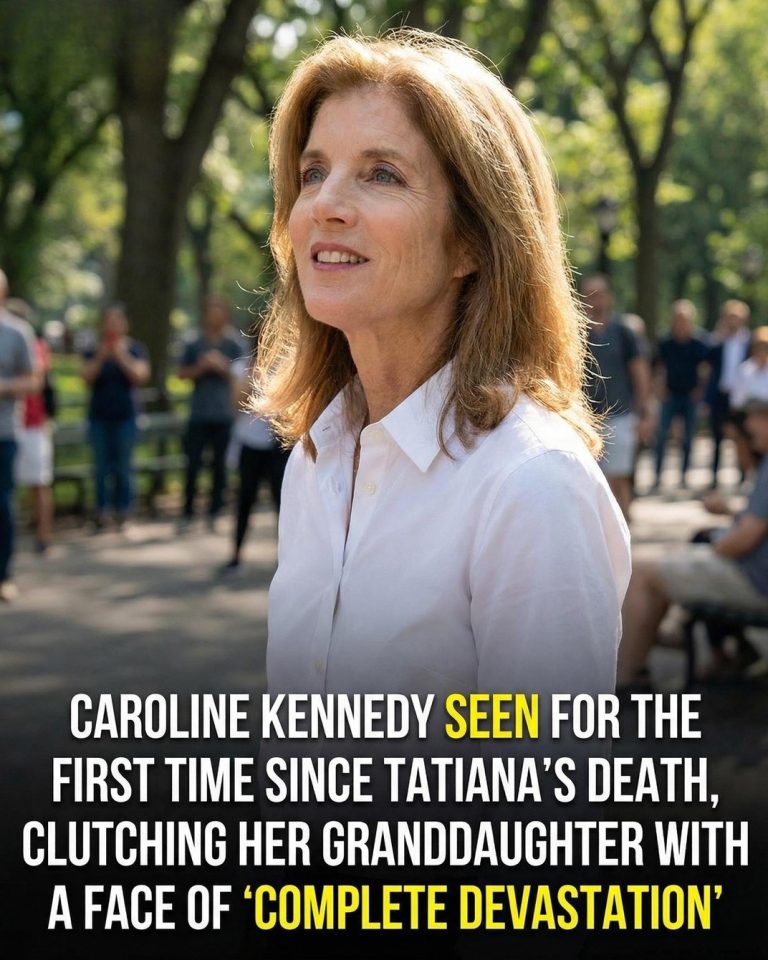Store Owner Stops Selling Pepsi Bottles After Noticing New Logo On Them
Alabama Store Owner Pulls NFL-Labeled Pepsi Products in Protest Over Anthem Controversy
Note: This story is being republished. It originally made headlines in October 2018.
In the small town of Athens, Alabama, one grocery store became the center of a national conversation about patriotism, protest, and corporate responsibility. S&Z Grocery, a locally owned business known for its wide selection of products and community ties, made headlines when its owner, Phillip Stewart, took a public stand by banning two specific Pepsi items from his shelves—not because of quality concerns, but because of the logo on the label.
The issue? The NFL logo.
At the time, the NFL was embroiled in controversy over players kneeling during the national anthem as a protest against racial injustice and police brutality. While many supported the players’ right to peaceful protest, others saw the act as disrespectful to the flag and the country. Stewart, a proud American and veteran supporter, fell into the latter group.
“I don’t want to support them in any way,” he told reporters. “I feel like it’s just wrong. I can’t in good conscience sell the product because it does have the logo on it.”
In a Facebook post that quickly gained attention, Stewart declared that S&Z Grocery would no longer sell 20-ounce bottles of Pepsi or Diet Pepsi—specifically because those bottles prominently featured the NFL logo as part of a marketing promotion.
“This may cause me to lose some business, but here goes,” his post began. “S&Z supermarket currently will not be selling 20 ounce Pepsi or Diet Pepsi. These two items are currently produced with the NFL logo on them. I refuse to sell the product until the logo is removed. I will not bow down in order to make a dollar as long as the athletes are allowed to bow down and disrespect the flag and country that I love.”

His message struck a chord with many in the community, especially those who felt similarly disillusioned by the NFL’s handling of the anthem protests. Comments poured in applauding Stewart’s decision, with many commending his courage to prioritize values over profit.
Despite his opposition, Stewart emphasized that he understood the heart of the players’ message. “I know what they’re trying to do. I just don’t agree with the tactic,” he said. “There are other ways to deal with the issue that don’t involve disrespecting the national anthem.”
Importantly, he didn’t ban all Pepsi products—only the ones adorned with the NFL branding. According to his distributor, the logo would remain on select bottles through the Super Bowl, meaning the ban could last for several months. Still, Stewart was firm in his resolve.

Photos of the Pepsi display and his Facebook statement circulated widely, generating discussion far beyond Athens. For some, it was a bold act of standing up for personal beliefs. For others, it was a flashpoint in the broader cultural debate over protest and patriotism.
In the end, Stewart’s stand reflected a moment in time when tensions around national symbols, athlete activism, and consumer values collided. Whether one agreed with him or not, his decision became part of a much larger conversation—one about the freedom to protest and the freedom to respond.


